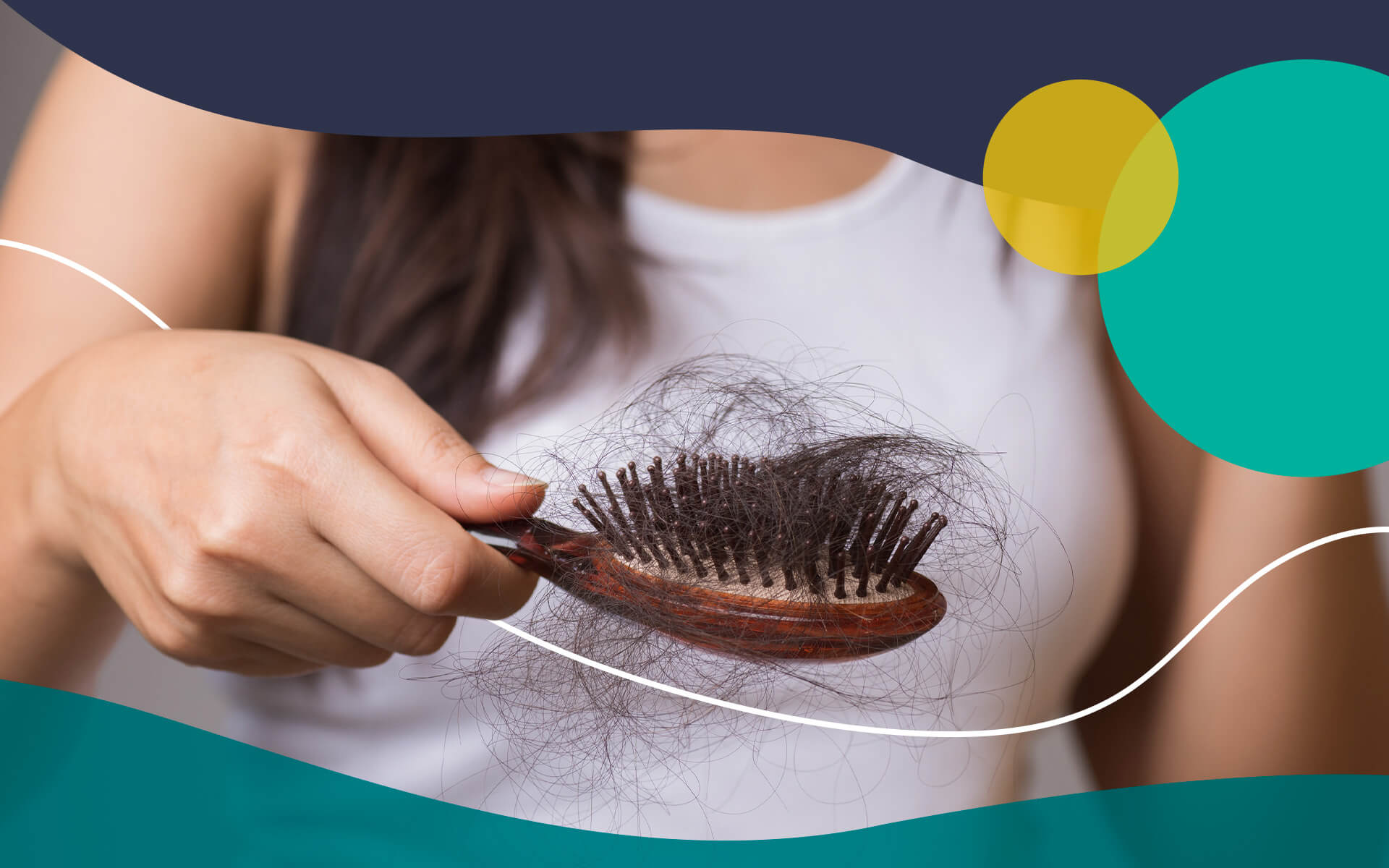
Body + Mind is reader-supported. We may earn an affiliate commission when you buy through some of the links on our site.
It’s difficult to feel confident about your appearance when your hair starts falling out. Minor hair thinning is expected as new strands grow in, but when should you become concerned? It depends on if you experience any of these eight causes of hair loss in women.
Women could experience additional hair loss or noticeable thinning for many reasons. If you’re worried about an underlying condition or health changes, talk with your doctor. They’ll recommend beneficial lifestyle changes so you can maintain your preferred hairstyle.
Your diet may have changed recently because of the holidays or shifts in your schedule. Sometimes you don’t have time to make a big dinner or stop for lunch, but skipping most meals or swapping them with protein bars isn’t good for your health. You’ll miss out on the nutrients in whole foods that fuel your body, including your hair growth.
Researchers found that niacin, protein, iron, and zinc deficiencies lead to hair loss and that people could quickly reverse them. Identify nutritional gaps in your meals or meet with a registered dietitian to get professional guidance and create a well-rounded diet.
Most people have heard of male pattern baldness, but women can experience genetic hair loss too. It often occurs along the hair’s natural part or crown, so it’s not as noticeable. If you have hair loss in these areas, meet with your doctor. Early access to treatment will arrest the progression of the disease by stimulating hair follicles.
You can also thicken your hair with vitamins while beginning the right medication. You can’t change your genes, but a few helpful changes like medication and vitamins will assist the growing process so your hair loss slows or stops.
Expecting mothers often hear how pregnancy makes them glow. It can also cause your hair to fall out, depending on how your body reacts to the hormonal changes. Between 40 to 50% of women experience hair loss after pregnancy because their hair goes into a resting phase.
In the three months after giving birth, your hormones go back to normal levels. Hair follicles fall into a resting phase where they fall out as needed and surge back into growth cycles. It’s a temporary cycle and should stop within the following year.
Birth control is a hormonal medication, so it can affect your hair like pregnancy. Hair loss is one of the more common side effects of beginning any type of birth control. If you recently started the daily pill or implanted the birth control stick, schedule a consultation with your doctor.
They’ll monitor the progression of your hair thinning and recommend possible dosage adjustments if it becomes a long-term problem. In the meantime, you can use volumizing shampoos for a full body appearance.
Sometimes starting the wrong medication can cause hair loss. It depends on how your body reacts to the new hormones, steroids or other ingredients. You may shed excess hair if you start taking medications such as:
Your doctor may switch your prescription if this becomes a problem or lower your dosage. It can take time to find the right medication for a new health complication, but hair loss typically isn’t a concerning side effect of starting a prescription.
When you experience intense physical or emotional stress, your body switches into survival mode. It conserves energy for only the most basic functions, like digesting food and producing energy. Stress might cause your hair loss if you can’t identify any of these other factors in your life. Mitigate it with self-care habits and rinse your hair with cold water after showering to promote faster natural growth.
Frequent itching or dry flakes coming from your hair could indicate that you have scalp psoriasis or dandruff. This might happen if you shampoo your hair too often and strip it of moisturizing natural oils. You may also develop malassezia around your follicles if you don’t shower regularly. It’s a fungus that contains 14 species of yeast and grows on the skin, resulting in itching or dryness.
While you figure out your shampoo schedule, try massaging apple cider vinegar through your hair. If you remove its potency by diluting it, the vinegar will balance your scalp’s pH that could currently cause your dandruff.
Straightening or curling your hair every day will create lasting damage. It fries hair strands and makes them more susceptible to breakage, which could be the hair loss or thinning you’re experiencing. You can easily fix this problem by using a heat protectant product.
Whether you use a spray or oil, the product forms a protective barrier around the hair cuticle, which keeps it healthy under extreme heat. You might need to use something like this even when blow-drying if your hair is sensitive to even low heat settings.
Think about your routine to see if these causes of hair loss in women affect your hair as well. Talking with your doctor, adjusting your diet or making a few lifestyle changes could solve your hair problems and restore your confidence.